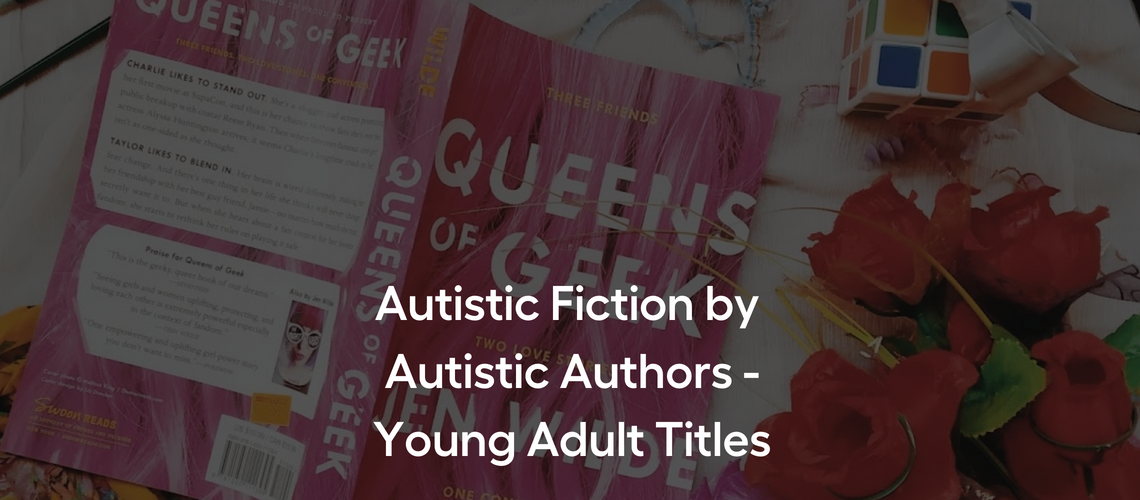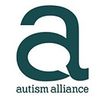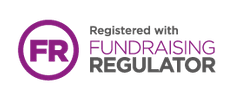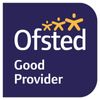Autistic Fiction by Autistic Authors – Young Adult Titles

Many autistic people will have read, or at least heard of, books like The Curious Incident of the Dog in the Night-Time, by Mark Haddon, or The Rosie Project by Graeme Simsion. Both prominently feature autistic protagonists. These novels are often suggested to autistic people and the people they know as a way into understanding the condition, and they are certainly among the most famous portrayals of autism of recent decades.
Interestingly, neither author has ever declared that they themselves are autistic. While this doesn’t mean that they aren’t, it’s perhaps unusual that these defining texts are by people with no lived experience of autism. In recent years, and for the very first time, we’ve seen the publication of novels featuring autistic characters that are written by autistic people. Here are a few you might want to seek out if you’re interested in reading more fiction about autistic people by autistic people.
The State of Grace (2017) by Rachael Lucas
This coming of age story features Grace, an autistic protagonist. She rises to the challenge of getting through that difficult period of life towards the end of childhood and embarks on her first romance while dealing with anxiety about social interactions. Further interest for an autistic reader comes in the form of the well-rehearsed debate about person-first versus identity-first language. If you are autistic, do you prefer to be called an autistic person or a person who has autism, or do you have no preference? In the book, the character Grace says: “We don’t have autism. That is to say, we are autistic. We don’t have it like you have a cold or hiccups. It’s part of us, and part of what makes us amazing.”
For autistic author Rachael Lucas, it was important to write about an autistic girl in order to challenge the fairly prevalent stereotype of the autistic man with genius mathematical abilities, found in places like The Curious Incident of the Dog in the Night-Time and in films like Rain Man. In a blog for publisher Pan Macmillan, she writes in depth about the difficulty of getting a diagnosis for girls and women. Click here for the full blog post
Queens of Geek (2017) by Jen Wilde
This title is all about fandom, something familiar to lots of autistic people. Whether it’s things like Star Trek or Harry Potter, Pokémon or Doctor Who, the often geeky special interests of autistic people are celebrated by this book, which is set at a convention. Autistic character Taylor is described as having a brain that is wired differently, and she struggles with anxiety, but comes out of her comfort zone to make some changes to her life.
This title also explores LGBTQ+ issues: autistic author Jen Wilde is queer and nonbinary. It’s something that’s not always remarked upon, but there are lots of LGBTQ+ people in the autistic community. Indeed, a 2017 study in the journal Autism Research by Rita George and Mark A. Stokes found higher rates of homosexuality, bisexuality and asexuality amongst autistic people when compared with the non-autistic population. (The study can be found here.)
Can You See Me? (2019) by Libby Scott and Rebecca Westcott Co-written by autistic blogger Libby Scott,
Can You See Me? is another coming of age story. Tally, a secondary school pupil, worries about hiding the fact she is autistic from other people, but importantly isn’t ashamed of it. As the first in a series of four books, with more on the way, the Can You See Me? sequence of stories lets us follow Tally as she grows up, and reflects on author Libby Scott’s evolving relationship with autism.
Interestingly, this book was co-written by established author Rebecca Westcott, a non-autistic writer. Sections written by her are in third person, placing some distance between creator and character. Meanwhile, Libby Scott’s sections are first person diary entries, adding an essential authenticity to those parts of the book. This title seems like it was designed from the ground up to respond to the idea that autistic characters should be written by autistic people.
A Kind of Spark (2020) by Elle McNicoll
Set in Scotland, A Kind of Spark features Addie, who learns at school about witch trials that occurred in her small town. This title celebrates special interests: Addie is fascinated by books, marine creatures like sharks, and now the history of the witch trials. She connects her own feelings of alienation with those of the women who were executed for witchcraft hundreds of years ago.
Autistic author Elle McNicoll is an advocate for neurodivergent stories. In an interview with the National Autistic Society (which can be found here), she makes a strong argument about using fiction to help her readers better understand autism. She writes: “My book shows autism for what it truly is. A neurological difference that affects everyone in specific ways. Not a superpower, not a curse. Just an alternative reflection of the human condition.”
Those four titles are just a small sample of the many published books by autistic writers. You might have noticed that all of these titles are what you might call young adult books, aimed predominantly at teenagers. Future blogs on this site might cover some of the other types of books written by autistic people, including fiction for adults and autobiography, if you’d be interested in reading about them.






